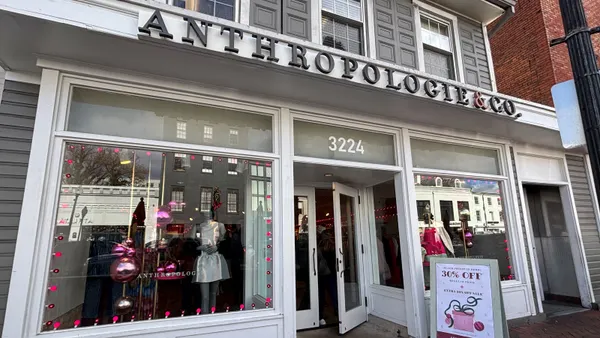Dive Brief:
-
The wage gap, which has dragged down the U.S. recovery from the Great Recession and shaken the American middle class, appears to be re-emerging after showing signs of narrowing, according to a note from financial services firm Cowen & Co. that was emailed to Retail Dive.
-
Lower-income consumers are becoming more stressed again, too, particularly as costs like health care rise — something that could be exacerbated by the Trump administration’s reversal of Obama-era overtime regulations and other pro-labor rules, according to the report. Both trends are likely to pressure spending and retail pricing, which could in turn boost discount retailers, according to the note.
-
There are also microeconomic issues in some retail sectors, according to Cowen analyst John Kernan, who flagged emerging price wars and slowing growth in "once high-flying athletic apparel and footwear," including at Nike, Under Armour, Adidas and Lululemon. "Apparel, footwear and accessories categories face a growing supply vs. demand problem," he said.
Dive Insight:
While the Trump election seemed to portend pro-business actions that many retailers have supported, including tax reform, Cowen’s look at the consumer level found that the high-conflict, highly partisan political era emerging under Trump is creating an environment of uncertainty for both businesses and households. Among other financial policies, tax reform faces uncertainties, while the administration's undoing of some key Obama-era reforms that helped shrink the wage gap and boost incomes might stress consumers and, in turn, retailers.
The President’s rhetoric on trade, which includes upending NAFTA and other trade agreements, as well as instituting tariffs, could present supply chain and sourcing issues for retailers, according to Cowen’s note.
Even ending DACA (the Obama-era Deferred Action for Childhood Arrivals system, which benefits people brought to the U.S. illegally as children), which the administration announced just Tuesday, could hit the economy by putting some 700,000 jobs at risk, Cowen analysts warned.
Not all retail businesses are affected by these actions and non-actions. Retailers that are accessible to lower-income groups and have strong omnichannel plays and differentiated merchandise to compete with Amazon, or those that cater to higher-income consumers, are in the best position to handle changes in these macroeconomic and microeconomic trends.
The analysts see hope for "retailers which can benefit from customers trading down, can retain share in the face of Amazon or have un-amazon-able qualities, and generally select low-end deep value stocks or high end luxury good picks." Those include the off-price TJX Companies and Ross, big-box retailer Walmart, and the luxury brands of conglomerate LVMH and upscale jeweler Tiffany, according to Cowen.














